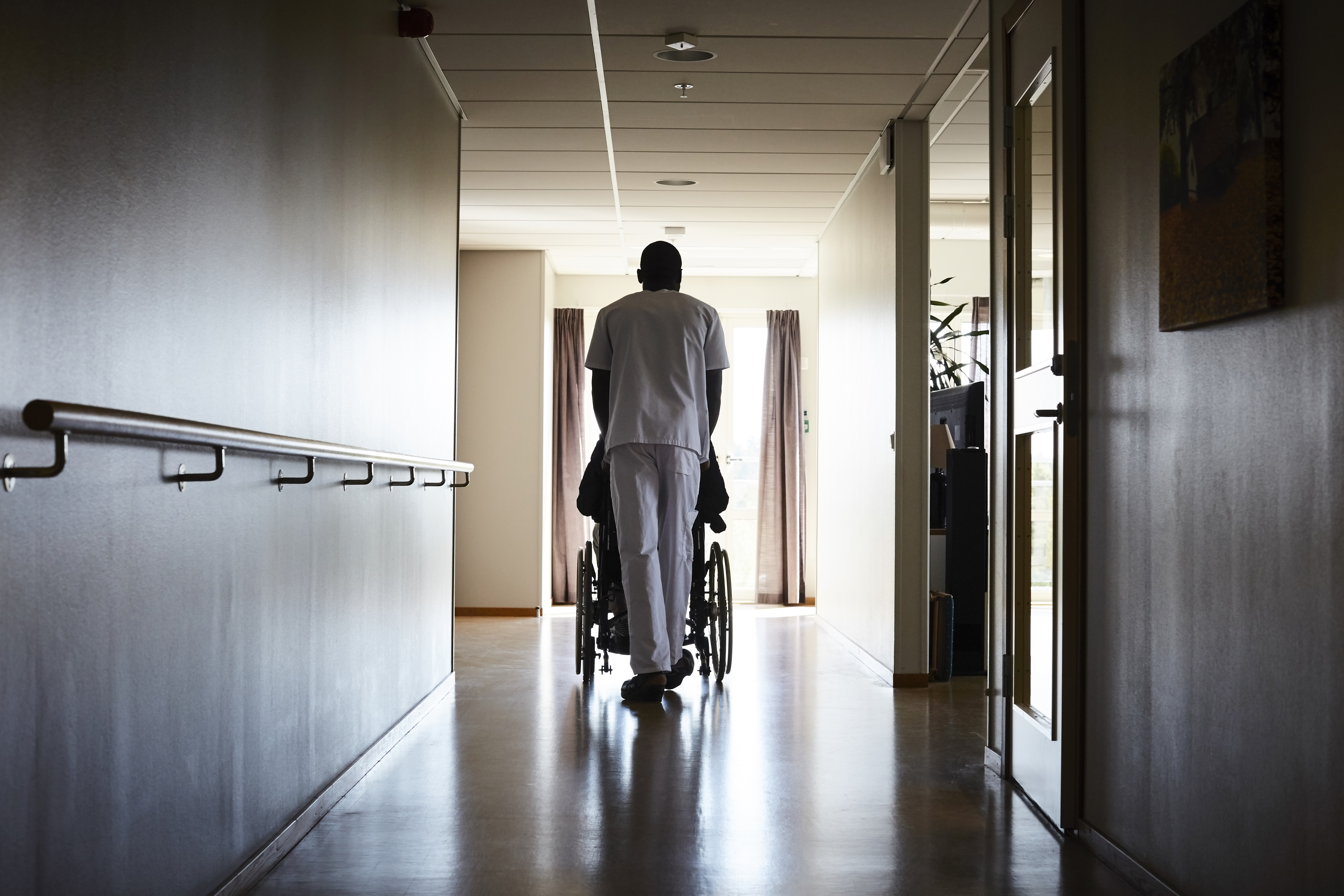When COVID-19 seeped into the Quincy Health and Rehabilitation Center, it spread like wildfire through the facility, infecting more than 100 residents and killing 42.
“It’s very difficult to contain once it starts,” said Steve Vera, CEO of Wachusett Healthcare, which runs the Quincy facility and a smaller one in Rockport.
Both are now free of the virus. And although the initial outbreak is over, Vera said the facilities urgently need to hire staff and replenish supplies of personal protective equipment – concerns that remain top of mind even after a period of crisis.
“Those are the two things that are the center of my focus every day,” he said.
As nursing homes across Massachusetts continue to grapple with the virus, many still don’t have a full roster of employees, according to new federal data, potentially compounding the challenges they face during the pandemic.
The Centers for Medicare & Medicaid Services recently asked all federally licensed nursing homes to begin reporting the number of COVID-19 cases and deaths among residents and staff, and to describe their staffing and supply of personal protective equipment.
The earliest reports, released last week, show nursing homes in Massachusetts were among the hardest hit by the virus. They suggest the Bay State has the second highest average death rate among nursing home residents of any state in the country, behind only New Jersey.
Massachusetts has seen some 4,600 deaths among nursing home residents to date, accounting for more than half of all deaths in the state.
The new federal data points to staffing as one common challenge. More than one in five local nursing homes reported running short of nurses and aides as of late May.
Before that, when the surge of cases in Massachusetts reached its peak, 60 or more employees of Quincy Health and Rehabilitation Centerwere out sick or on leave, Vera said.
“It’s very difficult to try to manage something when you don’t have any real backup,” he said.
For decades, the nursing home industry has been plagued by chronic underfunding and low pay. Vera got staffing help from the state, the National Guard and temporary agencies, but says retaining staff is a constant challenge.
“I think the rubber band has been stretched to its max,” he said, “and I think it’s great that we’ve gotten support during a pandemic, but I would like to see support on a day-to-day basis.”
Part of that support is an adequate supply of personal protective equipment, or PPE. Most nursing homes in Massachusetts report having at least a week’s worth of masks, gloves and other gear. But Vera says he’s already spent a quarter of a million dollars on supplies and needs more help.
“If you look at an N95 mask that would normally trade at a dollar or less, they’re being purchased at $6, $7 or even more,” he said.
The state is giving nursing homes an additional $130 million in May and June for COVID-19 expenses, including PPE, but some say it’s not nearly enough.
“It’s a pretty deplorable situation,” said Barbara Anthony, senior health care fellow at the Pioneer Institute, a Beacon Hill think tank. “We could have done a lot more than we did to save these lives.”
Anthony says the government has failed nursing home residents in funding, oversight and supplies. She says PPE and ongoing testing of residents and staff must be top priorities.
It was a massive state undertaking to get all nursing home residents tested in recent weeks -- a condition placed on facilities in order to receive additional funding. Many homes have launched ongoing testing programs, but with budgets and staff stretched thin, Anthony worries the virus could gain a foothold once again.
“It would be disgraceful beyond belief if we had a repeat of this in a few months,” Anthony said.



